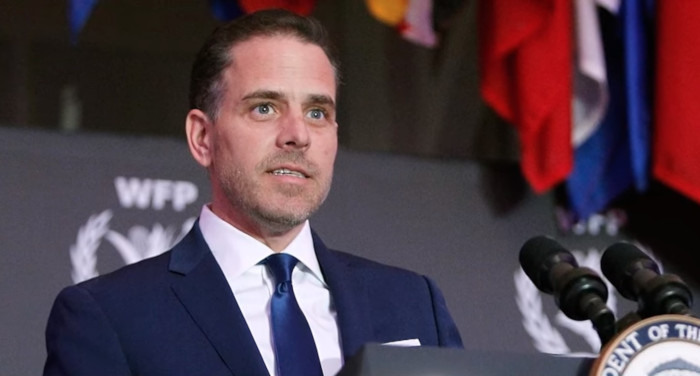Hunter Biden has been found guilty on all three gun charges by a Delaware jury after a relatively short period of deliberation. This decision marks a significant moment for the president’s son, who took a risky approach by opting for a trial instead of accepting a revised plea deal that was offered in the summer of 2023.
According to court filings, Hunter could potentially face a maximum sentence of 25 years in prison and fines amounting to $750,000. However, the exact sentencing guidelines are yet to be determined, as there is typically a delay of two to three months between conviction and sentencing in the federal system. Legal experts speculate that a conviction on all counts could result in a prison term of approximately one year.
The judge presiding over Hunter’s gun trial, Maryellen Noreika, recently handed down a one-year sentence to a defendant involved in a similar gun case. Despite the defense’s request for a six-month sentence, Noreika ultimately decided on a one-year term. The government’s charges against Hunter include one count of making a false statement during the firearm purchase, one count of possessing a firearm while being an unlawful user of or addicted to a controlled substance, and one count of making a false statement regarding information required by a federal firearms licensed dealer.
Evidence suggests that Hunter was using crack cocaine at the time of purchasing the firearm in 2018, as numerous photos from that period were discovered on his abandoned laptop. Additionally, the gun was found discarded in a public trash can near a school. It has been alleged that the Secret Service intervened in the investigation of this incident.
Ten witnesses were presented by the prosecution during the trial, whereas the defense only called one witness, Naomi Biden Neal. However, her testimony seemed to have a negative impact as it portrayed Hunter in an “erratic” manner to the jury, as reported by court journalists.
Legal experts cautioned that Hunter’s defense team may have been hoping for jury nullification. This occurs when the defendant is proven guilty beyond a reasonable doubt, but the jurors choose to disregard their oath and find the defendant not guilty.
The defense primarily attempted to depict Hunter as a victim of drug abuse. Defense attorney Abbe Lowell argued that the prosecutors needed to prove that Hunter had “knowingly” committed gun offenses. On the other hand, the government’s argument revolved around the principle that “no one is above the law” and that one’s identity or status does not matter. Prosecutors contended that Hunter had made the conscious decision to illegally possess a firearm and had also chosen to lie. They emphasized that these actions were the reasons for the trial.
Prosecutor Leo Wise, during closing arguments, pointed out that the presence of the Biden family in the courtroom did not serve as evidence. He gestured towards them and stated that the people sitting in the gallery were not evidence. In 2023, Hunter declined a plea deal offered by the prosecutors after negotiations fell apart due to judicial scrutiny of a “diversion agreement.”
The original plea deal, often referred to as a “sweetheart” deal, allowed Hunter to plead guilty to not paying taxes on an income exceeding $1.5 million in 2017 and 2018. In return, he would receive probation instead of jail time. Additionally, Special Counsel David Weiss devised a separate diversion agreement that granted Hunter immunity from potential future charges, including the possibility of erasing a felony gun violation from his record.
Later, Weiss indicted Hunter with tax violations in California, and the trial is scheduled for September. The case, titled United States v. Hunter Biden, No. 24-1703, is being heard in the United States Court of Appeals for the Third Circuit.






